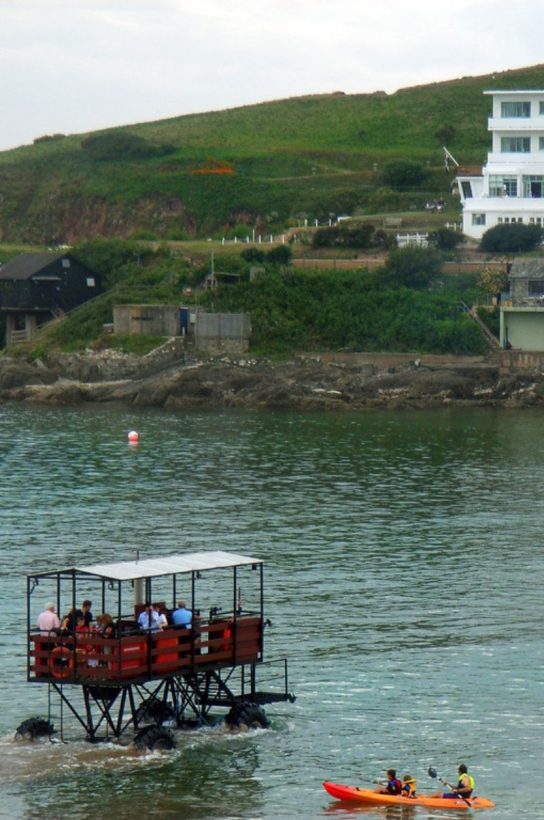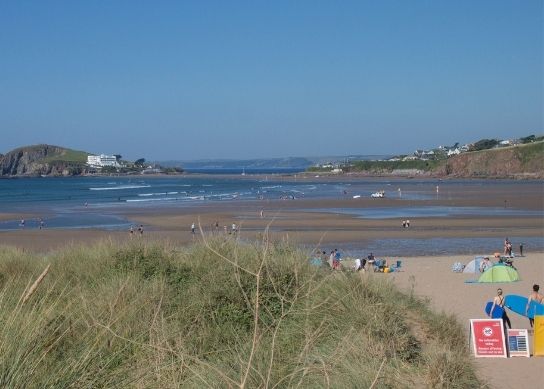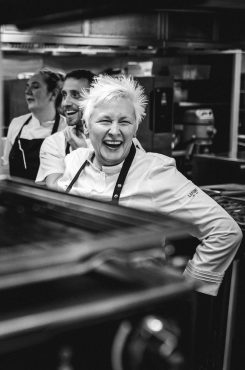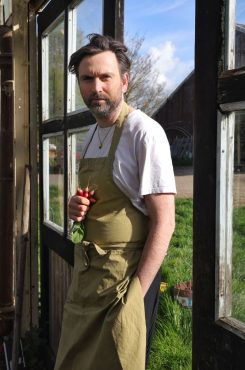Devon hotel to build 27 rooms for staff as part of £8m development plans
Published 29 March 2022
by Josh Barrie

Guests ride the sea tractor to the hotel at high tide. Credit: Wiki
Britain’s lack of affordable accommodation is well documented. The problem is only exacerbated in fashionable cities and along the coast, where people go on holiday and find themselves in bottlenecks.
For hospitality, the staff shortage persists, and during the busy summer season in the likes of Devon and Cornwall, increasingly the rooms and house shares used before for summer living are now AirBnbs and holiday rentals.
What are the options? Nathan Friskney-Bryer, who owns and runs Fitzroy and North Street Kitchen in Fowey, Cornwall, relies on his restaurants’ popularity and links to London to put up his seasonal workforce. Locals keep rooms and lodgings aside – his businesses are small and there isn’t the money to fund accommodation. That is one example with a community focus.
Bigger outfits with sizable budgets might consider following the Burgh Island Hotel, which has announced plans to build 27 new rooms for employees in response to the scarcity of accessible rental properties. The hotel, an Art Deco destination built in 1929 as a monument to the Roaring ‘20s that preceded it, sits on the iconic tidal island opposite Bigbury-on-Sea in South Devon, where the average house price now well exceeds £400,000, and rents aren’t cheap.

Hotel owner Giles Fuchs said he wants to balance its rich heritage with the need to retain a sustainable business model. The construction of the new staff accommodation, on the island and on the mainland, forms part of an £8 million development plan that will “deliver the discrete changes required to keep the hotel operational in the future”.
He also said the move follows “50 years of underinvestment under previous owners”, so the refurbishment is apparently timely. Works will also include the installation of heat exchangers, allowing for surplus heat generated in the kitchen to maintain a comfortable temperature in the dining areas. It ticks the ‘green’ box too.
“We are pleased to announce these plans to provide affordable accommodation for our staff, who quite simply cannot afford to rent in the area, nor can they afford to buy, given the landscape of the local property market,” said Giles.
“We are eager to ensure that the hotel remains a sustainable venture, and we are extremely keen to support our staff, so the building of this accommodation is a sound investment that will yield considerable benefits in future for them, our guests and the local community.”
Burgh Island has drawn up its development plans in partnership with Jonathan Rhind Architects and Avalon Planning & Heritage. Both are based in Devon and were chosen by the hotel on that basis. The submission of the planning application follows an extensive and collaborative process of consultation with South Hams District Council planning and conservation officers and its Design Review Panel.
Mark Raby, Architect Director at Jonathan Rhind Architects, said: “It is wonderful to work with a client who is not only passionate about their business and assets, but a company who sees their staff as valued people who need good accommodation and facilities to perform.
“The new staff accommodation achieves sensitive contextual development on the island to meet the hotel’s needs. We feel the designs will soon become another cherished puzzle piece in the well-loved heritage that is Burgh Island.”




